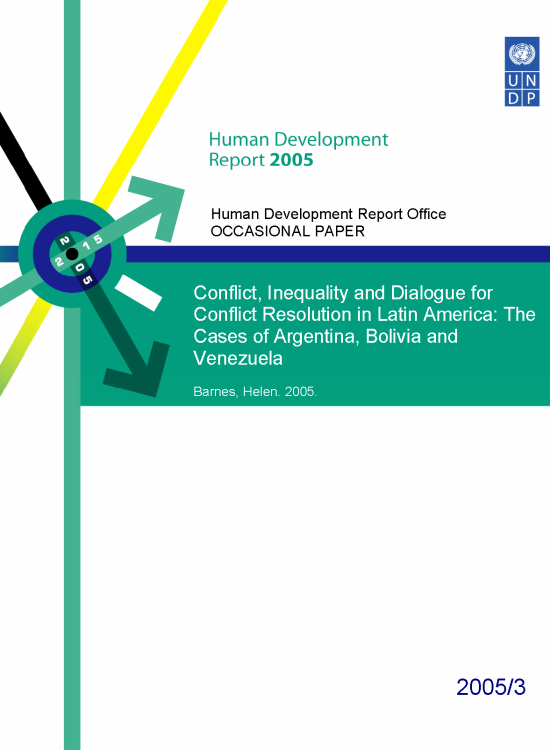Conflict, Inequality and Dialogue for Conflict Resolution in Latin America
The Cases of Argentina, Bolivia and Venezuela

Download Report by Language
Document
hdr2005barneshelen34.pdf
(382.64 KB)
Citation
Barnes, Helen. 2005. Conflict, Inequality and Dialogue for Conflict Resolution in Latin America: The Cases of Argentina, Bolivia and Venezuela. New York.
Conflict, Inequality and Dialogue for Conflict Resolution in Latin America
The Cases of Argentina, Bolivia and Venezuela
Posted on: January 01, 2005
As a region, 20th (and indeed 21st) century Latin America has been relatively free from international conflict. For all their entrenched rivalries and intermittent bouts of sabre-rattling, Latin American countries have rarely come to blows. Since the 1960s, the only full-scale international conflicts in the region have been the El Salvador- Honduras war of 1969 and the Argentina-UK war over the Falklands/Malvinas in 1982 (Holsti 1996), the latter of which can be seen primarily as a diversionary tactic on the part of a failing military dictatorship. The reasons for such stability are both circumstantial and cultural. Twentieth century Latin American governments have tended to focus their attention on domestic political stability, economic growth and, during the Cold War, national security – in part out of fear of U.S. intervention. Latin American governments have also traditionally given high priority to national sovereignty and non-intervention, and have adopted non-fatal attitudes to conflict that allow them to keep relations open despite tensions. South America in particular has an elaborate diplomatic system of legal norms and a culture of legalism that encourages recourse to international law and arbitration for dispute resolution (Pope Atkins 1999, Holsti 1996).

